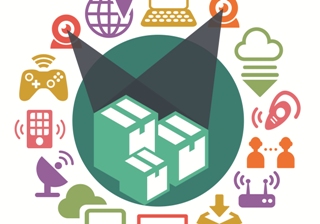 Logistics companies should look into the potentials of applying consumer-oriented technologies such as smartphones and tablet PCs to their business operations to improve efficiency, says a new DHL study.
Logistics companies should look into the potentials of applying consumer-oriented technologies such as smartphones and tablet PCs to their business operations to improve efficiency, says a new DHL study.
The trend report “Low-Cost Sensor Technology” says consumer-intended technologies like Microsoft’s video-game camera Kinect, smart watches, and near field communication technology (a short-range wireless connectivity technology) can also be increasingly incorporated into logistics.
“This marks a complete reversal of past practices in which new technologies were initially applied in business and migrated to private uses only later,” according to the study, which seeks to identify future issues that could impact on the logistics industry.
“The success of Smartphones and tablet PCs has created a situation in which employees have better technology for personal use than they do for business needs,” it further said. “For this reason, we think companies have to step up and put smartphone sensors in particular to work in logistics.”
Tablet PCs and smartphones contain a large number of sensors that recognize the surroundings, enabling them to measure acceleration, position, or light.
“The technologies contained in them can also be put to use in logistics,” the report said. “These applications can include recording the arrival time of shipments in parcel centers as part of tracking and tracing services, pinpointing the shipment’s exact location and updating their status on an online platform.”
DHL also suggested two other application areas for depth-sensing technology—for speeding up the measurement of pallet volume, and filling level measurements for containers and trucks as well as monitoring and documenting freight damage.
While interested in sensors, the logistics industry has been put off by the high cost of investing in industry-oriented depth-sensing technology, said the research paper. But personal-use counterparts may provide the key to the mass-production of reasonably priced business models.




